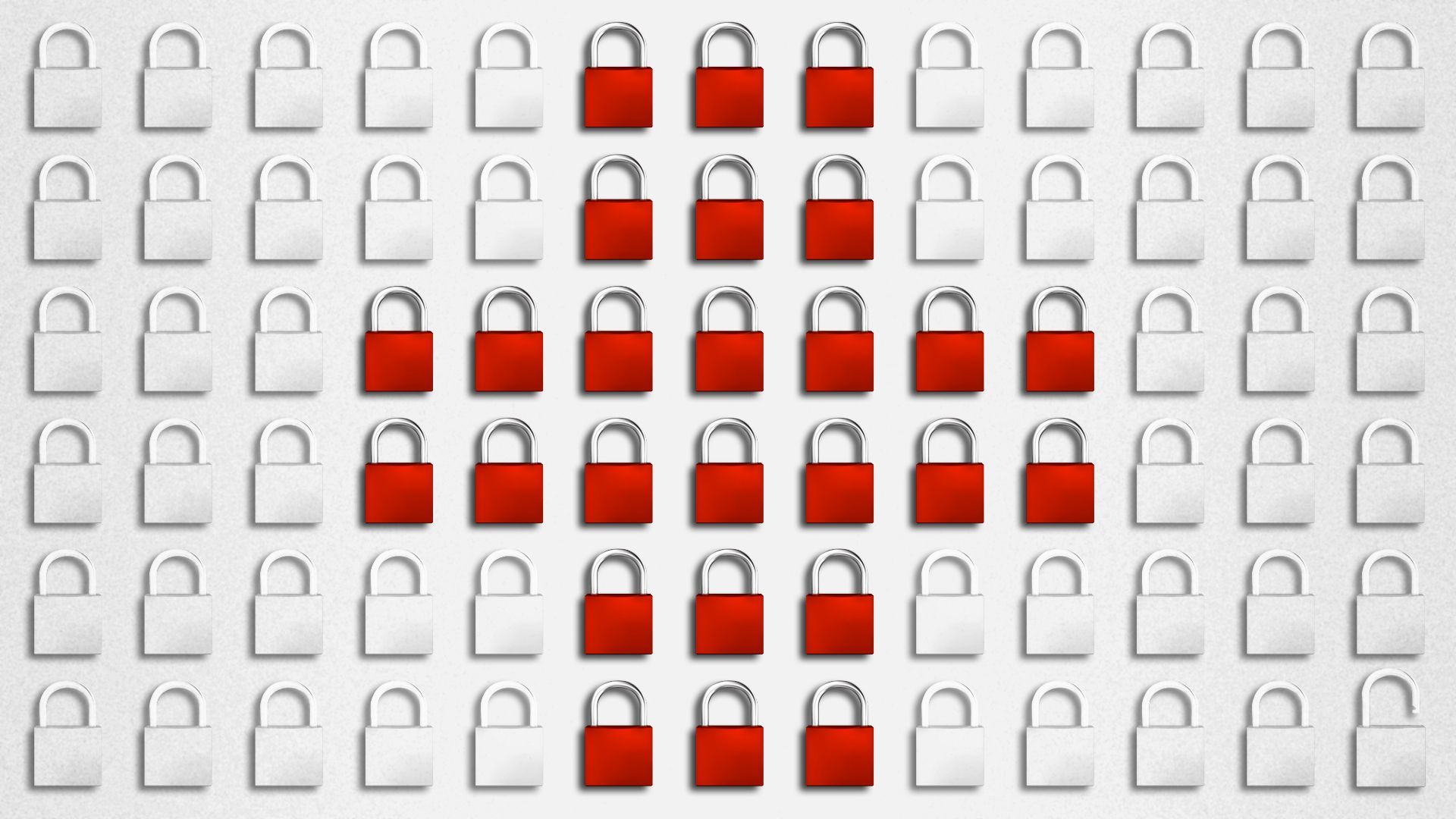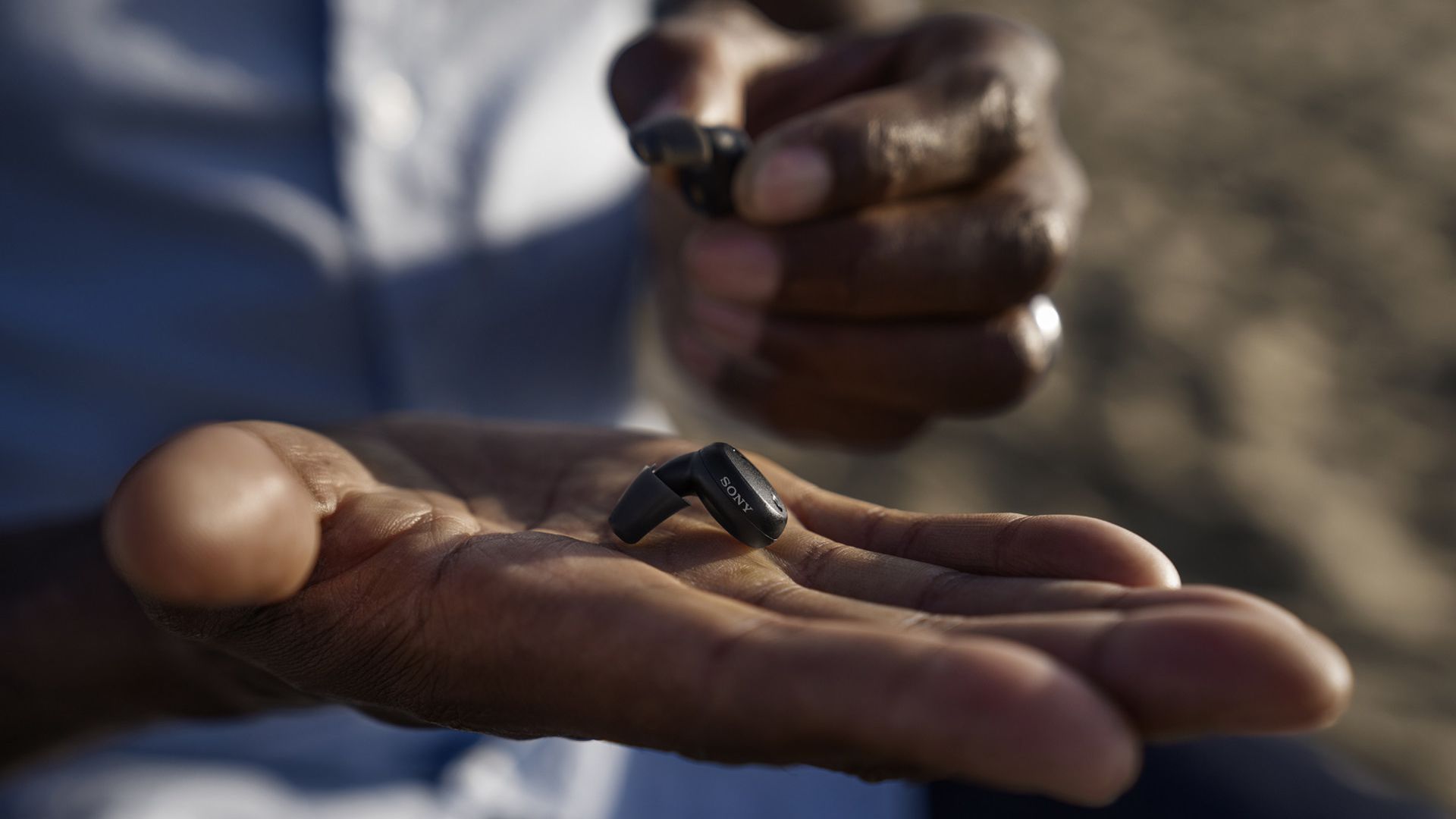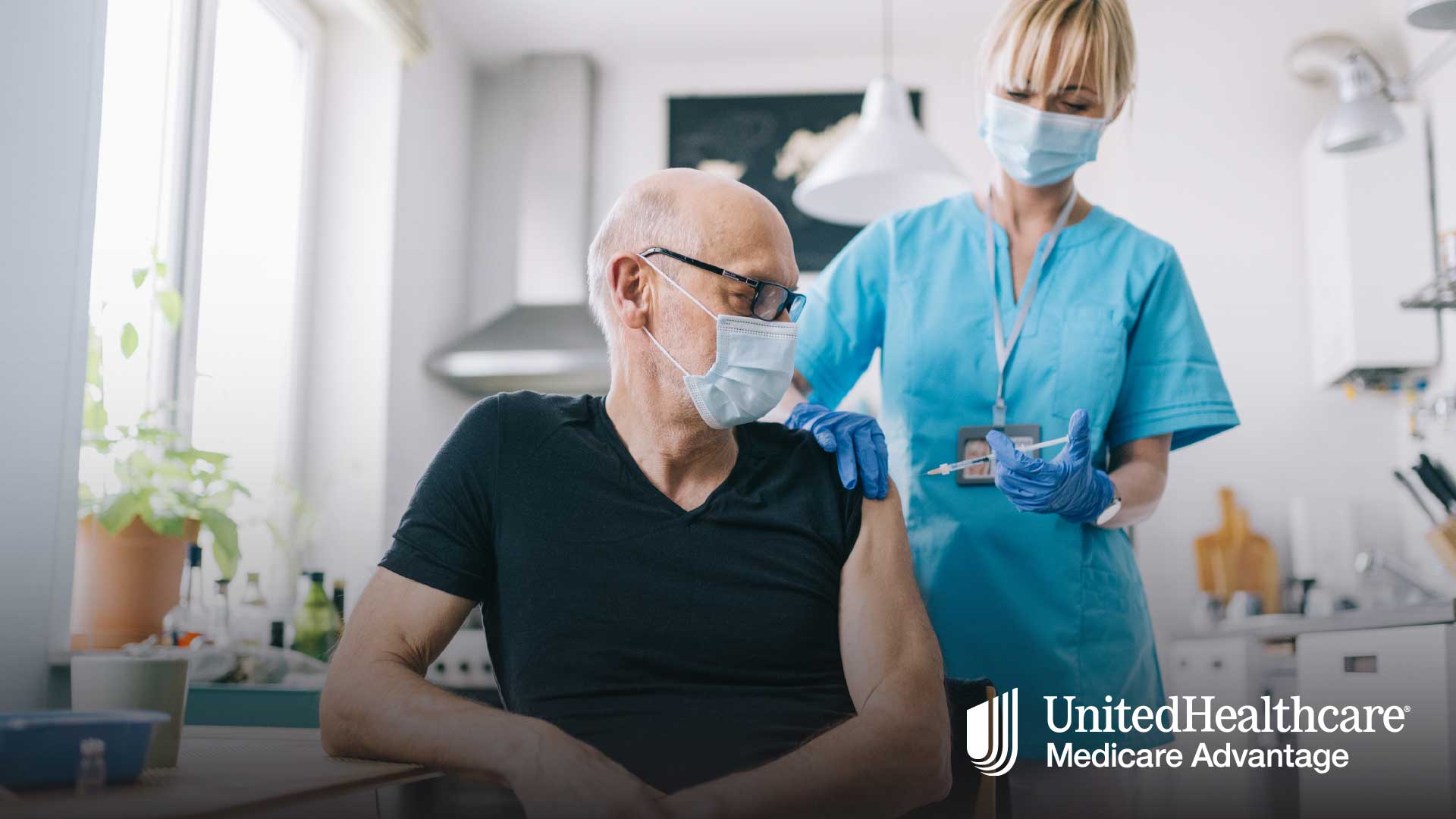| | | | | | | Presented By UnitedHealthcare | | | | Axios Vitals | | By Tina Reed · Oct 18, 2022 | | Good morning, Vitals readers. Today's newsletter is 1,136 words or a 4½-minute read. Situational awareness: HHS Secretary Xavier Becerra will be joined by Sens. Debbie Stabenow and Roy Blunt this morning in an announcement that hundreds of millions of dollars will be awarded to support the nation's behavioral health infrastructure. - A large portion of the funding comes from the gun-reform legislation passed earlier this summer, officials said.
| | | | | | 1 big thing: Health system ransomware attack highlights patients' vulnerability |  | | | Illustration: Megan Robinson/Axios | | | | A crippling ransomware attack on the second-largest U.S. nonprofit health system is showing how much patients can be left in the dark when critical health care infrastructure goes down. Why it matters: The attack earlier this month on CommonSpirit Health, which has 142 hospitals in 21 states, left IT locked, delayed surgeries and caused widespread disruptions in patient care. This latest attack comes as the Biden administration examines how to beef up minimum cybersecurity standards within critical infrastructure like health care, the Washington Post reports. - There's been a nearly 50% increase in interactive intrusion campaigns this year, with some of the most notable increases against health institutions, per a recent report from cybersecurity firm Crowdstrike.
- Experts tell Axios the situation points not only to the need for more safeguards but reporting requirements once intrusions occur.
State of play: Health systems remain uniquely vulnerable to threats, experts say. - They're highly complex, relying on a vulnerable supply chains and connections with numerous small clinics and vendors, Barak Israel, chief information security officer of Boston-based Cybereason, told Axios.
- With lives on the line, hospitals have more to lose if they don't pay up.
- But health systems also have fewer incentives to truly prioritize their cybersecurity, said Grant Elliott, CEO of Arlington, Virginia-based risk management platform Ostendio.
- "There's a distinct lack of enforcement within health care generally and, as a result, there's not a huge amount of consequence to these organizations for not building an effective security program," Elliott said.
- One 2020 study by CybelAngel found more than 45 million X-rays, CT scans and other medical images could be accessed on unprotected servers, unencrypted and without password protection.
Zoom in: CommonSpirit confirmed in a statement Monday it is still working to bring systems back online. - "As previously shared, we took immediate steps to protect our systems, contain the incident, begin an investigation, and maintain continuity of care," CommonSpirit said in an emailed statement.
Yes, but: They haven't offered enough information for patients quickly enough, Israel said. - "We don't know what was disrupted," he said. For instance, patients don't know what sort of potential disruptions this has caused to certain services or procedures and they have no idea the extent their personal information might have been stolen, Israel said.
- "Especially because we know we can expect this kind of behavior from threat actors to continue and even become more aggressive, there's clearly a need for an ongoing conversation on the regulator level on how to create a regulation for medical service providers that is a lot more specific, includes a lot more accountability and includes a lot more transparency," he said.
|     | | | | | | 2. Social media's abortion fail |  | | | Illustration: Maura Losch/Axios | | | | Big Tech platforms are blocking abortion-pill distribution information and permitting false narratives about abortion to spread, more than 100 days after the Supreme Court's ruling overturning a constitutional right to abortion, Axios' Ashley Gold and Oriana Gonzalez write. Why it matters: Social media firms were caught flat-footed by that sudden change in the legal and informational landscape at a time when there's an overwhelming, sudden need for solid information and access to healthcare services online. The big picture: Abortion rights advocates say that misinformation around reproductive health online has gotten worse since the Dobbs decision in June striking down Roe v. Wade. - "Evidence shows that misinformation and disinformation about reproductive health care, especially abortion, is on the rise on social media platforms and right-wing, anti-choice news sites," Julia Bennett, senior director of digital education and learning strategy at Planned Parenthood, told Axios.
Catch up quick: Shortly after Roe was overturned, more than 200 medical organizations and non-profits sent a letter to the heads of Meta, YouTube, TikTok and Twitter saying that "medical disinformation is a threat to public health." - The letter urges the tech companies to take action against misinformation, including expanding their policies around misinformation to "include bans on medical disinformation, including abortion disinformation."
|     | | | | | | 3. The expanding DIY health economy |  | | | Sony's CRE-E10 self-fitting OTC hearing aids. Photo: Courtesy of Sony | | | | The amplification of the do-it-yourself economy is giving consumers more options to sidestep health professionals, Axios' Nathan Bomey writes. Why it matters: The DIY health movement can deliver savings and less red tape for patients, but also raises the risk of missing out on services from qualified medical professionals. Driving the news: Hearing aids on Monday became available for sale over-the-counter, meaning people suffering from hearing loss no longer have to first pay for a visit to an audiologist. "There's been a big move to empower consumers" with their own health care decisions, University of Michigan Center for Health and Research Transformation senior adviser Marianne Udow-Phillips tells Axios. - SmileDirectClub is offering patients the option to avoid orthodontists altogether.
- People can test themselves for COVID-19 at home.
- The FDA is considering allowing certain birth control pills to be sold over the counter.
By the numbers: Since 1976, more than 120 "ingredients, indications or dosages" that previously required a prescription can now be obtained over the counter, according to the Consumer Healthcare Products Association. The other side: "A lot of [the opposition] has come from the physician lobby that has wanted to make sure you're not missing something critical," Udow-Phillips says. Related: |     | | | | | | A message from UnitedHealthcare | | Better care with UnitedHealthcare's Medicare Advantage HouseCalls | | |  | | | | Millions of Medicare Advantage seniors rely on UnitedHealthcare's free HouseCalls program, which brings important preventive care visits into their homes. Our HouseCalls program helps keep seniors out of the hospital, and members give the service a 99% satisfaction rating. Find out more. | | | | | | 4. Data du jour: Insulin rationing |  Data: Gaffney, et al., Prevalence and Correlates of Patient Rationing of Insulin in the United States: A National Survey; Chart: Axios Visuals More than 1 million adults are forced to ration insulin due to the drug's high costs, according to a new study in the Annals of Internal Medicine, Oriana writes. Why it matters: U.S. insulin prices tend to be five to 10 times higher than those in 32 other high-income countries. Driving the news: Democrats' Inflation Reduction Act will cap monthly out-of-pocket insulin costs to $35 for Medicare beneficiaries starting next year. By the numbers: The researchers analyzed the 2021 National Health Interview Survey and found that 1.3 million Americans — 16.5% of adults with diabetes that use insulin — rationed doses in the past year. - Delaying purchases of the drug to save money was the most cited reason for rationing (14.2%), followed by cutting doses (10.6%) and skipping shots altogether (9.6%).
- Uninsured people had the highest rates of rationing (29.2%), followed by those with private coverage (18.8%). Medicare recipients had lower rates (13.5%).
What they're saying: "Insulin rationing is frequently harmful, and sometimes deadly," lead research author Adam Gaffney, a pulmonary and critical care physician, said in a statement. |     | | | | | | 5. Catch up quick | | 🏛 The DOJ filed suit against Cigna, alleging it made tens of millions of dollars by making certain Medicare Advantage patients seem sicker than they actually were. (ABC News) 👉 The Trump administration regularly interfered with CDC's process for developing and issuing guidance about COVID-19, a congressional report found. (The Hill) 🧫 Florida is reporting a surge in deadly bacterial infections in the aftermath of Hurricane Ian. (Axios) |     | | | | | | A message from UnitedHealthcare | | HouseCalls help prevent health issues among seniors | | |  | | | | UnitedHealthcare's Medicare Advantage HouseCalls provide preventive care visits in the comfort of seniors' own homes. The highly trained nurses are thorough, spending up to an hour with seniors and following up with doctors to address any issues. Learn more. | | | | Thanks for reading, and thanks to senior editor Adriel Bettelheim and senior copy editor Bryan McBournie for the edits. Please ask your friends and colleagues to sign up. |  | | Why stop here? Let's go Pro. | | | | | | Axios thanks our partners for supporting our newsletters. If you're interested in advertising, learn more here.
Sponsorship has no influence on editorial content. Axios, 3100 Clarendon Blvd, Arlington VA 22201 | | | You received this email because you signed up for newsletters from Axios.
Change your preferences or unsubscribe here. | | | Was this email forwarded to you?
Sign up now to get Axios in your inbox. | | | | Follow Axios on social media:    | | | | | |









No comments:
Post a Comment